How the North can play a leading role in the economic recovery
Following the shattering experiences of World War II, Great Britain faced a colossal challenge.
For six long and arduous years it had been forced to recalibrate its economy to support the war effort.
Advertisement
Hide AdAdvertisement
Hide AdBy the time hostilities had ceased it faced a fresh battle to rebuild its economy.
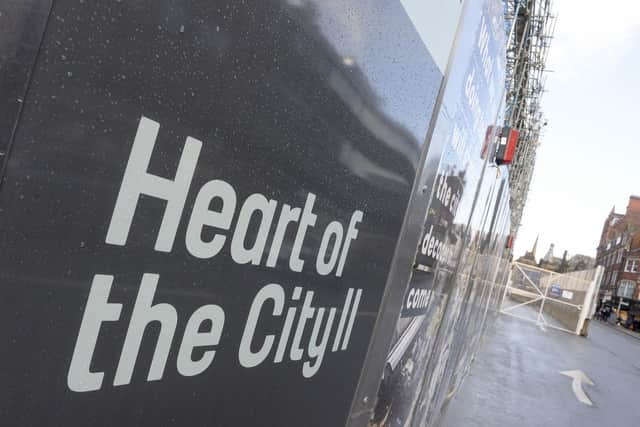

Successive governments, both Labour and Conservative, committed to investment into new infrastructure like motorways and telecommunications, modern industries centered around electronics and household goods and improved social policies that saw the creation of our National Health Service and the welfare state.
The decades that followed the cessation of hostilities proved to be among the most prosperous and progressive in the nation’s modern history. Unemployment was below 2 per cent. One Prime Minister even remarked at the time “we have never had it so good”.
In the month that we marked the 75th anniversary of VE Day we now face ourselves tasked with rebuilding our economy for a new era.
Advertisement
Hide AdAdvertisement
Hide AdWith the country most likely already in recession, and a severe downturn widely predicted by economists.
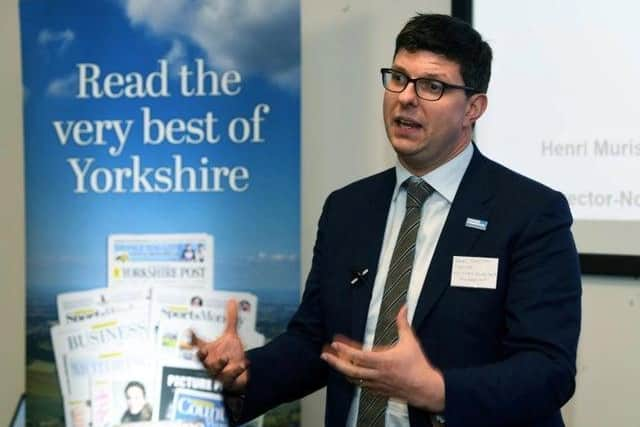

The Office of Budget Responsibility believes the economy could dip by as much as 35 per cent and result in 2 million jobs being axed.
But, just as the North of England was the epicentre for the first Industrial Revolution, many of the region’s modern business and civic leaders believe it could be a key player in the next.
KICKSTART
Today, a plan to kickstart the reconstruction of the UK’s economy is launched by the Northern Powerhouse Partnership.
Advertisement
Hide AdAdvertisement
Hide Ad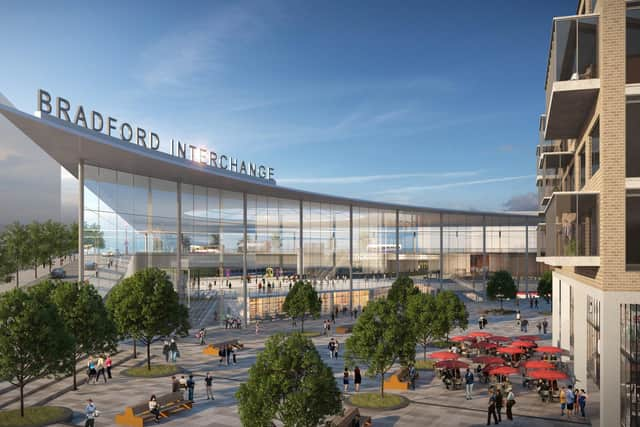

It aims to end the North/South divide but also massively improve the lot of the nation as a whole by empowering and investing in the North.
It cites five key areas; transport infrastructure, green energy, improved skills, better digital connectivity and higher education standards.
And it wants the bulk of the work to enhance these areas to be done here in the North, rather than handed down by Whitehall diktat.
The NPP’s director Henri Murison told The Yorkshire Post that the plan was about delivering a credible plan for rebuilding the economy.
Advertisement
Hide AdAdvertisement
Hide Ad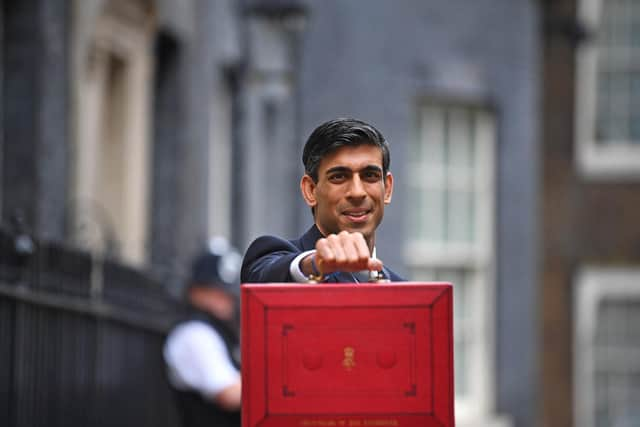

“This is not a list of jobs for the Government,” he told The Yorkshire Post.
“It is a list of shared ambitions we should be working towards.”
Mr Murison’s remarks come six months after the Conservatives were returned with a handsome 80 seat majority in the general election,part of which came from a manifesto commitment to “level up” up the economy, pledges that were made again this week by Chancellor and Richmond MP Rishi Sunak as he extended the furlough scheme.
“Levelling up has to be done as part of the economic recovery,” said Mr Murison.
“It is not a stand-alone project. It has to contribute.
Advertisement
Hide AdAdvertisement
Hide Ad“ I think that even in the midst of this crisis, the fact that the Chancellor is still thinking beyond Covid 19 and beyond the initial economic turmoil says a lot about the opportunity.
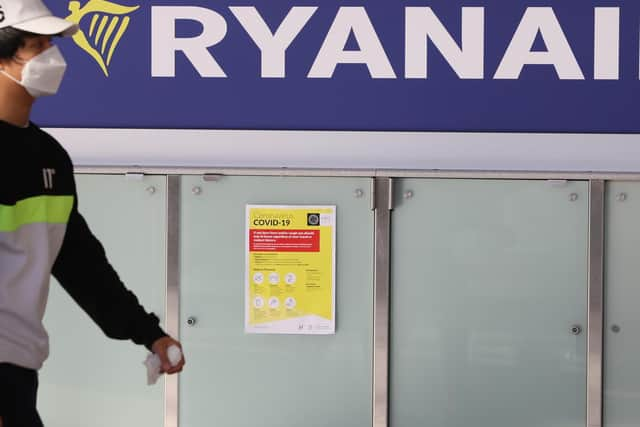

“As northern businesses and civic leaders we need to work collaboratively to put a plan to Government that they can allow us to go away and implement.”
A major part of the NPP plan to revitalise the North lies in connectivity.
Much has been made of HS2 and Northern Powerhouse Rail (NPR) being gamechangers for the region but even before Covid-19 these projects remained years from completion.
Advertisement
Hide AdAdvertisement
Hide AdHowever, Mr Murison and others believe that other upgrades can be enacted here and now, providing vital employment opportunities as well as enhancing the North’s ability to allow its citizens to travel more quickly and easily.
He said: “NPR relies on upgrades, not just new lines.
“Building a new line beyond Bradford and on to Manchester is a completely new route. That is challenging and will take years.
“But there are some projects like upgrading the line between York and Leeds that will be part of Northern Powerhouse Rail which we can build now.
“There are shovel ready projects that are pieces of infrastructure that will still be needed in 30-40 years. Let’s get them done to the highest standard now so we don’t need to go back and spend money later.”
CONNECTIVITY
Advertisement
Hide AdAdvertisement
Hide AdConnectivity extends beyond merely being able to catch a reliable train or travel without incessant gridlock.
With much of the nation forced into home working owing to the lockdown, the disparity in digital connectivity has been starkly illustrated.
And a two tier system is now evident on that front as well.
“If we want the economy and this recovery to be for all, one of the key opportunities is to make sure that some of the people who were not at the front of the queue before the crisis actually are.
Advertisement
Hide AdAdvertisement
Hide Ad“While it is probably not appropriate to build a high speed rail line to every town in the North of England, it probably is right to improve some of the local train and bus routes through local investment and devolution and it is right to accelerate fibre -this will make a tangible difference.”
He cites the example of Halifax, home to many thriving businesses but who need to operate a Leeds office owing to poor digital connectivity.
The economic outlook may be bleak but short lived. If the health crisis can be brought under control, the same economists predicting a devastating fall are also predicting an equally massive rebound.
However such a severe contraction would almost certainly make job losses inevitable.
Advertisement
Hide AdAdvertisement
Hide AdThe furlough scheme may have been extended to October for businesses and employees but few believe it will continue in its current guise for much beyond that.
Even before Covid-19 it was widely expected to render many jobs obsolete owing to automation and artificial intelligence. The picture should look bleak, but Mr Murison believes there is a chance to change that.
“We want to be able to keep the people we need on this journey,” he said.
“And while that may not be in the job you had before, if people aspire to get a good quality job with a long term future, they should have the right to get support to do that.”
Advertisement
Hide AdAdvertisement
Hide AdThat will mean retraining people. The North has far lower productivity than the rest of England and, while the reasons for this are manifold, reskilling is an area the NPP believes can reverse this.
The key to making this happen is in giving more control over skills spending to devolved mayors. The NPP believes that the key to this is not in spending more money but in using existing funding more judiciously by tailoring it to individual local needs.
“It has to be recognised that there are lots of people who are in low productivity jobs who missed out the first time on skills education in the post 16 system whio have got stuck in jobs that they are not happy in. Let us make the most of that and take this opportunity to get into a job they really want to do.
“We have some great and growing opportunities for the North of England. We need to make sure that those who are affected by this awful crisis and lose their jobs get the opportunities to get those new high skilled well paid jobs.”
Advertisement
Hide AdAdvertisement
Hide AdBut the world of work is not the only area that NPP wishes to change.
LEVEL PLAYING FIELD
Educational attainment in the North varies widely and, while it has many high performing schools, it also has among the nation’s poorest.
And with schools all but shut down, the crisis has inevitably hit the least advantaged communities the worst. Those in affluent areas or who are studying at private schools can likely enjoy remote learning and live lessons broadcast on the web. Equally, there are thousands of children who lack access to the internet and have to make do with teachers dropping off photocopied sheets for them to do their work from home .
“That is not an effective mechanism for teaching in the modern world, especially when many private schools are teaching almost as normal,” said Mr Murison.
Advertisement
Hide AdAdvertisement
Hide Ad“We need to level that playing field. I admire the private schools that have so well for their kids. I just want the same opportunity for communities that did not have the same advantages during the lockdown.”
Underpinning all of these areas is the notion of devolution.
There are now mayors for Manchester, Liverpool, Sheffield, Birmingham and the Tees Valley, with a mayor for West Yorkshire to be elected next year.
Improved decision mechanisms in the North can mean that an already over-stretched central Government is spared the headache of enacting these changes.
Advertisement
Hide AdAdvertisement
Hide AdThe recommendations will be made to Whitehall in the coming weeks but not as an ask for charity, but rather empowerment.
“Our pitch to Rishi Sunak and the Government is not that the North wants loads of money,” ends Mr Murison.
“We want to spend as much of existing committed infrastructure spending now to keep people in work and create new jobs to create new jobs.”